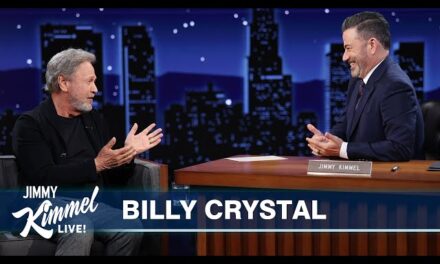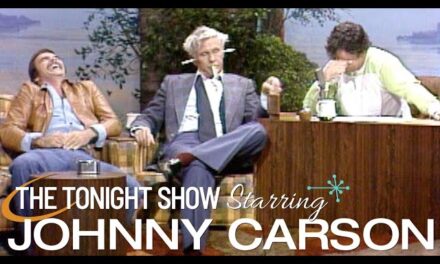On a recent episode of the talk show hosted by David Letterman, comedian and host of the popular HBO series “Last Week Tonight with John Oliver,” John Oliver made an appearance that was nothing short of entertaining.
Oliver, known for his witty and sharp humor, entered the stage to applause and music, showcasing his comedic charm. As the conversation started, Oliver jokingly referred to a musical piece played before his entrance, stating that it was from “Oliver Twist” and pondering whether it was kind or offensive. He then engaged in banter with Letterman and his band leader, Paul, emphasizing his lack of offense and his desire to avoid controversy.
The conversation soon turned to Oliver’s rising fame and the widespread success of his show. Oliver mentioned that his face could be seen on billboards and buses all over the city, to which Letterman inquired if he felt self-conscious about his increased visibility. Oliver responded with a resounding “yes,” expressing his distaste for seeing his own face plastered everywhere. He humorously noted that he didn’t believe anyone would walk past his picture and think, “Oh good, I’m glad that’s there.” Instead, he shared that the presence of his image often generated the opposite effect.
One anecdote Oliver shared exemplified the mixed reactions to his fame. He mentioned visiting a local diner where a man had put up his picture on a nearby phone box. The man was initially furious about Oliver’s increased notoriety until Oliver reassured him by saying, “I’m nobody.” The man replied, “I thought so,” suggesting that Oliver’s recognition brought unwanted attention.
Letterman then questioned Oliver about the decision to feature his image on various media platforms. Oliver humorously recounted his lackluster response to marketing discussions wherein he inquired about when all the advertisements would be taken down. Clearly, Oliver wasn’t thrilled with the constant visibility, which seemed to contradict the marketing team’s intentions.
Transitioning to a discussion about Oliver’s show and its weekly format, Letterman mentioned Oliver’s previous experience working on “The Daily Show with Jon Stewart,” where the pace was much faster. Oliver agreed, highlighting the mental clarity that comes with a daily show and the lack of time to dwell on failure. However, with a weekly format, Oliver humorously stated that one could “wallow in a bathtub of self-loathing” and face mental damage during the longer period between episodes.
As the conversation progressed, Oliver touched upon his wife’s career as a triage nurse and her past experience serving in Iraq as a combat medic. He expressed gratitude for her invaluable work in disaster zones and helping veterans. Oliver lightheartedly joked that while his wife dedicated her life to such noble causes, he wasted their goodwill by pursuing a career in comedy.
The conversation concluded with a humorous story about Oliver’s wife attending one of his performances with fellow comedian Jim Gaffigan. Oliver described how his wife, who seldom laughs at his jokes, burst into fits of laughter during Gaffigan’s set. Her reaction prompted her to turn to Oliver and ask, “Why can’t you do that?” Highlighting the stark contrast in their comedic appeal, Oliver found humor in his wife’s preference for other comedians.
John Oliver‘s appearance on David Letterman‘s talk show was filled with laughter and amusing anecdotes. From his distaste for his own celebrity to his wife’s preference for other comedians, Oliver’s self-deprecating humor shone through, leaving viewers entertained and eagerly awaiting the next episode of “Last Week Tonight with John Oliver.”




